-
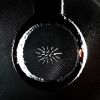 +27 +1
+27 +1Scientists discover critical factors that determine the survival of airborne viruses
Critical insights into why airborne viruses lose their infectivity have been uncovered by scientists at the University of Bristol. The findings, published in the Journal of the Royal Society Interface today [21 June], reveal how cleaner air kills the virus significantly quicker and why opening a window may be more important than originally thought. The research could shape future mitigation strategies for new viruses.
-
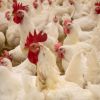 +21 +1
+21 +1Eating Ourselves Into the Next Pandemic
In the aftermath of COVID-19, it is tempting to characterize pandemics as problems foreign in origin, traced to shadowy wildlife markets and unhygienic conditions. Indeed, such “wet” markets sometimes sell and slaughter wild, exotic animals on site leading to concerns that diseases may spread there across species. Expert calls for global bans on wet markets and the consumption of wildlife have been met with overwhelming approval.
-
 +18 +1
+18 +1China scientist concedes Wuhan lab leak theory for first time
The comments are the first admission by a senior official that Beijing’s took the so-called Wuhan lab leak theory seriously after years of heated denials.
-
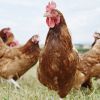 +22 +1
+22 +1Two poultry workers test positive for bird flu
The cases in England were found during screening and there is no sign of human-to-human transmission.
-
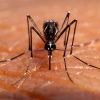 +19 +1
+19 +1Mosquito Saliva Can Actually Suppress Our Immune System, Study Finds
We know mosquitoes are a serious threat to our health as human beings– in fact, they're the world's deadliest animal, with mosquito-borne diseases responsible for more than a million deaths a year.
-
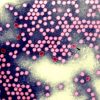 +12 +1
+12 +1NY officials detect polio again, warn of possible summer wave
With new detection, officials warn of spring and summer transmission risks.
-
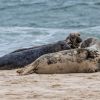 +23 +1
+23 +1Bird Flu Associated with Hundreds of Seal Deaths in New England in 2022, Tufts Researchers Find
A study from Cummings School of Veterinary Medicine is the first to connect highly pathogenic avian influenza to a large scale mortality event in wild mammals.
-
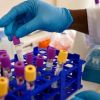 +20 +1
+20 +15th person confirmed to be cured of HIV
Researchers are announcing that a 53-year-old man in Germany has been cured of HIV.
-
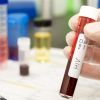 +9 +1
+9 +1Third person cured of HIV after stem cell transplant, researchers say
The patient in Germany was given the transplant to help treat a blood disorder, which in his case was leukaemia, that had developed alongside his HIV infection, and after four years of not taking anti-retroviral medicine, he has not relapsed.
-
 +4 +1
+4 +1A Malignant Flu May Soon Evolve to Infect and Kill Humans, Report Says
Scientists fear a mammal-to-mammal spread could lead to global catastrophe.
-
 +22 +1
+22 +1First came a viral storm. Now, we have puzzling superinfections.
Rare bacterial infections, such as invasive strep A, are popping up around the United States and Europe, with unusual effects for children.
-
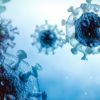 +22 +1
+22 +1‘Zombie’ virus revived after 50,000 years trapped in Siberian permafrost
Researchers from the French National Centre for Scientific Research have revived more than a dozen prehistoric viruses that were previously trapped deep within the Siberian permafrost, according to a pre-print study.
-
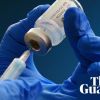 +16 +1
+16 +1Universal flu vaccine may be available within two years, says scientist
Vaccine against all strains of virus hailed as major step in protecting against potentially devastating flu pandemic
-
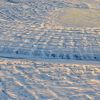 +17 +1
+17 +1A 48,500-year-old virus has been revived from Siberian permafrost
Seven viruses from the Siberian permafrost have been revived and replicated themselves in the lab – including the oldest revived so far
-
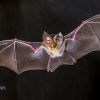 +17 +1
+17 +1Chances of finding COVID-virus ancestor ‘almost nil’, say virologists
Genome analysis finds SARS-CoV-2 and bat coronaviruses shared an ancestor just a few years ago, but extensive recombination has muddied the picture.
-
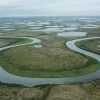 +22 +1
+22 +1Thawing permafrost exposes old pathogens—and new hosts
The Arctic—that remote, largely undisturbed, 5.5 million square miles of frozen terrain—is heating up fast. In fact, it’s warming nearly four times quicker than the rest of the world, with disastrous consequences for the region and its inhabitants. Many of these impacts you probably know from nature documentaries: ice caps melting, sea levels rising, and polar bears losing their homes. But good news! There is another knock-on effect to worry about: the warming landscape is rewiring viral dynamics, with the potential to unleash new pathogens.
-
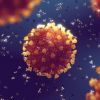 +13 +1
+13 +1Controversial new research suggests SARS-CoV-2 bears signs of genetic engineering
A string of about 30,000 genetic letters were all that it took to start the nightmare of covid-19, the death toll from which is likely to be more than 20m. Exactly how this story began has been hotly contested. Many think that covid-19’s emergence was a zoonosis—a spillover, as so many new pathogens are, from wild animals, for it resembles a group of coronaviruses found in bats.
-
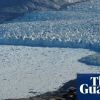 +12 +1
+12 +1Next pandemic may come from melting glaciers, new data shows
Analysis of Arctic lake suggests viruses and bacteria locked in ice could reawaken and infect wildlife
-
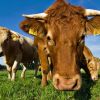 +9 +1
+9 +1Personal lubricant made from cow mucus may protect against HIV
In a laboratory study, human epithelial cells were treated with the lubricant before being exposed to HIV or a herpes virus, with subsequent infection rates being as low as 20 per cent.
-
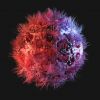 +1 +1
+1 +1A bold effort to cure HIV—using Crispr
Key is whether the gene-editing technology can stop the virus from replicating.
Submit a link
Start a discussion




















